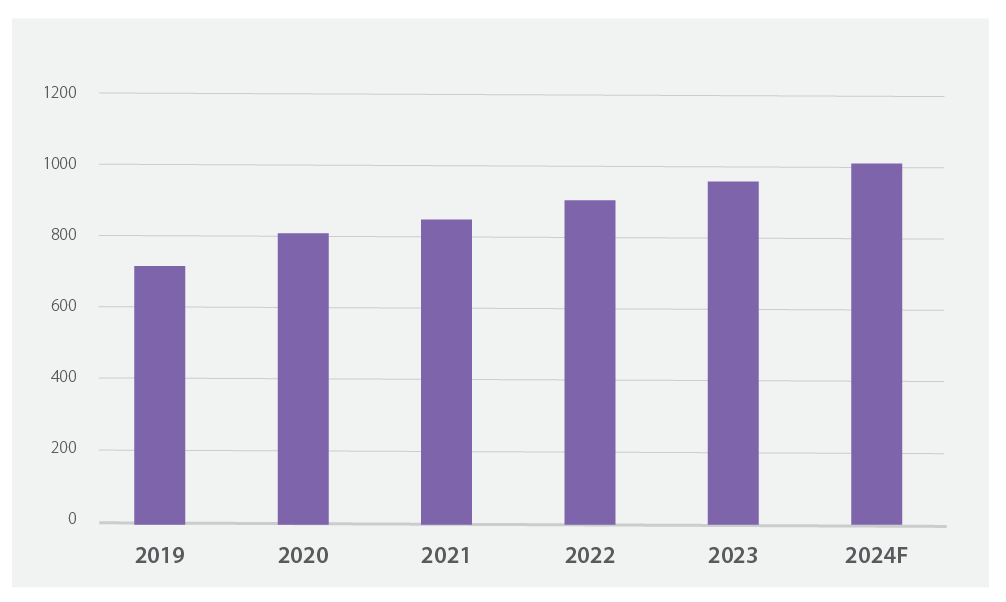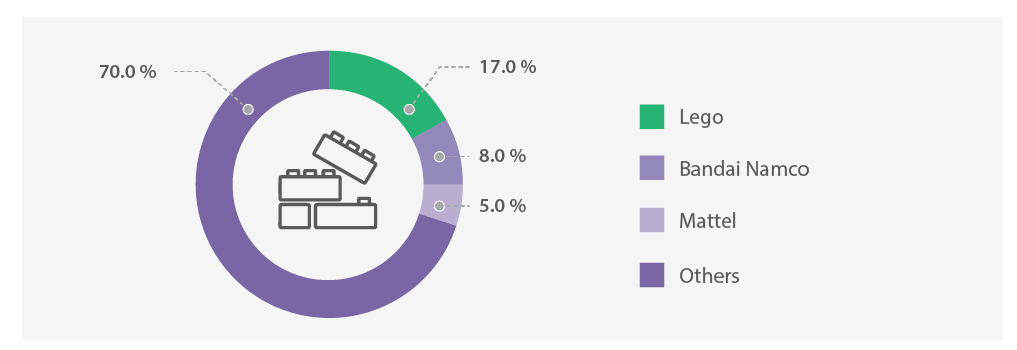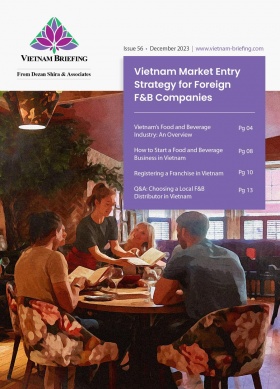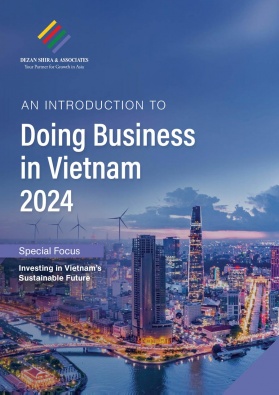Vietnam’s Toy Market: An Overview 2024
In this article the Vietnam Briefing looks at Vietnam’s toy market and the challenges and opportunities it presents for foreign firms.
With a population of 100.3 million people in 2023 and a birth rate that has been consistently above 1 million births annually, Vietnam presents a significant market for children’s toys. In addition to this demographic trend, increasing disposable incomes are also driving demand for toy products among Vietnamese parents.
Market overview
According to Statista, the toy market in Vietnam witnessed consistent growth over the last five years. In 2023, the market revenue reached US$951 million, with plastics and other toys emerging as the top-grossing category, generating a revenue of US$272 million.
Vietnam’s toy market, US$ millions

In the future, the market is expected to continue to grow with a projected revenue of US$1.004 billion in 2024 and a CAGR of 4.86 percent in the period from 2024 to 2028.
Key players in Vietnam’s toy industry
Per Statista data, big players in the market are well-established companies such as Lego, Mattel, and Bandai Namco. These industry leaders hold significant market shares in various product categories, including action figures, dolls, board games, puzzles, and construction sets.

Lego
Holding the highest market share of 17 percent in 2022, LEGO Group is a renowned Danish producer of construction toys, primarily featuring interlocking plastic bricks. In 2023, Lego opened its first official store in Vietnam at Takashimaya Mall, Ho Chi Minh City. The company also initiated the construction of a 44-hectare factory in Binh Duong province, which is anticipated to become fully operational in 2025. This is a strategic move aimed at expanding the firm’s supply chain and driving sales growth in Vietnam and the Asia-Pacific region.
Bandai Namco
Securing the second position is Bandai Namco, a prominent Japanese toy manufacturer recognized for its popular toys and collectibles like Ultraman, Kamen Rider, and Tamagotchi. Bandai Namco does not have an exclusive distributor or an official store in Vietnam. However, their products can be easily found in major retailers such as My Kingdom and Kid’s Land, as well as through family and individual retailers across the country.
Mattel
Mattel, the leading American toy manufacturer, holds third place with a 5 percent market share in 2022. Noteworthy brands from Mattel include Barbie, Hot Wheels, and Uno. In Vietnam, Mattel’s products are distributed exclusively by Phuong Nga Toys, a subsidiary of N Kid Group.
Market trends
Growing preference for educational toys
Vietnam’s toy market is currently trending towards educational toys, which encompass both physical and mental development. In 2022, Metric reported that sales revenue from educational toys took the lead, reaching VND450 billion (US$18.75 million). Following closely in second place were outdoor and exercise toys, generating nearly VND430 billion (US$17.9 million).
This is a combination of many factors including rising awareness among parents about the educational and cognitive benefits of toys, the cultural emphasis on education and academic success in Vietnam, and the encouragement of physical education in children for well-rounded development.
Surging popularity of e-commerce platform
Another key trend is the rising popularity of e-commerce platforms, driven by their convenience which aligns with modern fast-paced lifestyles, competitive pricing, and frequent promotions as well as the shift in consumer behavior post-Covid-19.
According to Metric’s data, the combined sales of toys in 2022 on major platforms such as Shopee, Lazada, Tiki, and Sendo amounted to 24,974,800 products. This suggests an average purchase of almost 3,000 toy products per hour.
In particular, Shopee holds the largest market share at 78.4 percent, with the remaining 21.6 percent split between Lazada, Tiki, and Sendo.
Challenges for investors in the toy industry
Market fragmentation
The children’s toy market in Vietnam is experiencing intense competition, fueled by the country’s expanding middle class and increasing disposable incomes. The fragmented nature of the market poses challenges for both local and international players in establishing a strong presence.
Lao Dong Thu Do Newspaper noted that while local companies are striving to meet demand by emphasizing cultural relevance, affordability, and traditional craftsmanship, global players leverage established brands and advanced technologies to dominate both the high-end toy market with high-quality products and the low-cost segment through mass production.
Prevalence of counterfeit products
During the introduction conference of the tiNiToy brand, Benjamin Tng, Managing Director of Distribution at N KID Group, a renowned children’s entertainment company, noted that up to 70 percent of Vietnam’s children’s toy market consists of unbranded items raising concerns about toy safety.
Addressing this issue, during an interview with An Ninh Thu Do Newspaper, consumers in Hanoi expressed difficulty distinguishing between fake and genuine toys, as both types fulfill children’s needs. Moreover, many parents appear unaware of the harmful effects associated with using counterfeit toys for their children.
Another significant factor adding to the widespread availability of counterfeit products is their lower prices, which serves as an incentive, particularly for those with lower incomes, when buying toys for their kids. According to Mr. Do Viet Tung, Lego’s External Affairs Director, counterfeit Lego sets may cost only VND200,000 – 300,000 (US$8.3 – 12.5) per set, while authentic Lego products range from VND700,000 – 800,000 (US$29.2 – 33.3) for small sets and go up to several million Vietnamese Dong for large, detailed sets.
Public concerns regarding toxic chemicals
The prevalence of non-branded items in the market raises concerns about product quality, particularly regarding lead poisoning.
Dr. Nguyen Thi Huu from the Department of Pediatrics, Viet Duc University Hospital emphasized that many toys of unknown origin are often made from poor-quality plastic and leaded metal, posing significant toxicity risks. Given the habit of young children sucking on toys, prolonged use can adversely impact brain development and lead to intestinal diseases, tuberculosis, pneumonia, and allergies.
A report by the Research Centre for Gender, Family, and Environment in Development and the Department of School Hygiene and Health found that 37.5 percent of toy samples in preschools in Nam Dinh Province contained lead with an average lead content of 2,207.83 mg/kg, significantly exceeding the regulated limit of 90 mg/kg.
Another study by a group of scientists presented at the 5th International Scientific Conference and the 9th National Scientific Conference on Occupational Health and Environment found that 9.7 percent of toys in Hanoi kindergartens contained lead. The average lead content of these toys was 625.3 mg/kg, seven times higher than the safety standard for children’s toys.
These findings have prompted Vietnamese parents to raise their standards for toy safety, and have led to increased government scrutiny and inspection of toy products marked by the introduction of the National Technical Regulation on the Safety of Toys QCVN 3:2019/BKHCN in 2019.
Conclusion
The toy industry in Vietnam is experiencing promising growth, positioning itself to capitalize on the rising demand within the nation. Given the intense competition, foreign companies often seek local distributors and retailers with robust connections and expansive networks to effectively distribute their products to consumers.
Investors who are considering investment opportunities and wish to connect with potential partners should consult with the experts at Dezan Shira & Associates for more comprehensive insights and guidance on navigating this promising market.
About Us
Vietnam Briefing is published by Asia Briefing, a subsidiary of Dezan Shira & Associates. We produce material for foreign investors throughout Asia, including ASEAN, China, and India. For editorial matters, contact us here and for a complimentary subscription to our products, please click here.
Dezan Shira & Associates provide business intelligence, due diligence, legal, tax and advisory services throughout the Vietnam and the Asian region. We maintain offices in Hanoi and Ho Chi Minh City, as well as throughout China, South-East Asia, Dubai, and India. For assistance with investments into Vietnam, please contact us at vietnam@dezshira.com or visit us at www.dezshira.com.
- Previous Article Vietnam fijará los precios anuales de la energía solar y eólica con nuevas normas.
- Next Article Vietnam to Offer Reduced Tariffs on Select Cambodian Goods







